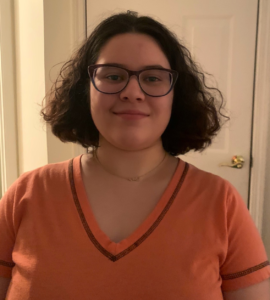
Name: Tylor Diana Brents
From: Atlanta, GA
Votes: 0
2022 Driver’s Education Scholarship Round 3
Most teenagers dream of getting their driver’s licenses to gain more independence. Before a teen gets a driver’s license, someone ensures they are sufficiently trained; someone needs to supervise during the initial driving phases (driver’s permit). Driver’s education is offered at schools and private training programs across the country for this reason. It’s required by law in the US and gives new drivers the tools they need to understand the “rules of the road.” Driver’s education teaches laws, road signs, driver’s etiquette, driver judgment, defensive driving, driving in inclement weather, and many other facets of driving. It’s necessary to have these skills before you begin driving an automobile to prevent injury and death to others and follow all laws related to operating a vehicle on public roads.
More than three thousand people in the US die yearly in distracted driving incidents (National Highway Traffic Safety Administration, 2010-2013, 2014-2018, and 2019. NHTS discovered in a survey of high school students (2021) that thirty-nine percent stated they had texted while driving over the previous 30 days. Continued driver education is important to reduce those numbers.
My grandfather and great-grandfather were retired sheriff’s deputies and Marines who served in wars – one in Korea and both in Vietnam. They were strong advocates of abiding by LEGAL driving practices and drilled them into our family while educating us on the repercussions of distracted driving. I have benefitted from lessons on road safety for most of my life. My parents have been volunteers with our local Emergency Services, so I have heard the horrors of what happens when people make mistakes while driving. I have been to multiple driving seminars with them and have been with my brother to a teen driving class while he was preparing to get his license. Benjamin Franklin stated (1736) that “an ounce of prevention is worth a pound of cure,” meaning that working to stop something before it happens is easier and more effective than waiting to resolve or recover from it in the future. I am committed to my driving education and preventing distracted driving in myself and others.
I have only been in one minor accident. My mom was driving me to a local ballet performance in 2019 when another car didn’t obey traffic laws and rear-ended us. The driver had been reading on her phone, traveling too fast for the conditions, failing to yield to oncoming traffic, and failing to stop at a traffic light. I wasn’t hurt, but my mom has had a lot of neck and back pain since then. The other driver’s insurance had already paid for two doctor’s visits and one physical therapy session when the pandemic started. My mom couldn’t continue going because she was high-risk and on chemotherapy at the time. Her oncologist didn’t want her to be exposed to covid-19 unnecessarily. That meant my mom stayed home for most of the past three years. I feel bad that my mom continues to be in excruciating pain because of someone else’s negligence. I think the other driver needed more education or monitoring by her insurance to ensure that she would not hurt anyone else’s family member.
My grandfather always insisted that everyone buckle up for safety – I learned at an early age that he would not start the car until he heard every occupant say “click” to indicate that we had all fastened our safety belts. Driving is a skill that requires a driver’s undivided attention. Drivers should not eat, make a call, text, email, check social media, or adjust the GPS while driving. As a passenger, I always volunteer to do these tasks for my family and friends, and I vow to politely use my voice to remind other drivers of safety rules. As someone on the autism spectrum, I struggle with my focus, so I have decided to wait until I am more mature to begin driving myself. I can still help other drivers by aiding them while I am their passenger. I will continue to help by reminding other drivers of road safety, providing them aid by being their road assistant and navigator, and sharing crash statistics and messages intended to prevent distracted driving.
If we wish to reduce the number of unnecessary automotive accidents and related deaths, we need to continue to provide driver’s education. Further, we need to do everything we can to prevent distracted driving. My parents and grandparents taught me safe driving practices, I know my state’s rules and consequences for driving, and I have heard or read true-life stories that I can use to insist a driver pays attention to the task at hand: arriving alive. Together, we can reduce the number of unnecessary driving-related deaths with driver education and distracted driving prevention.